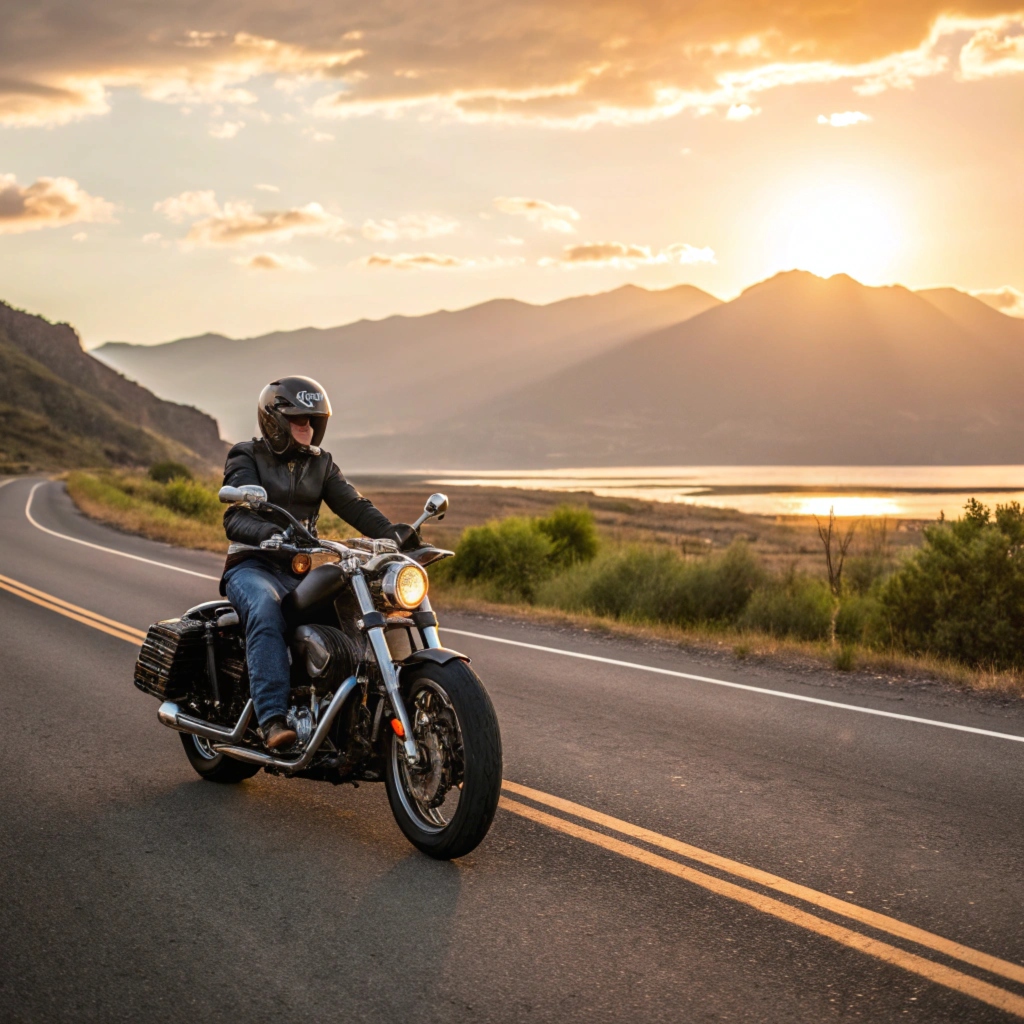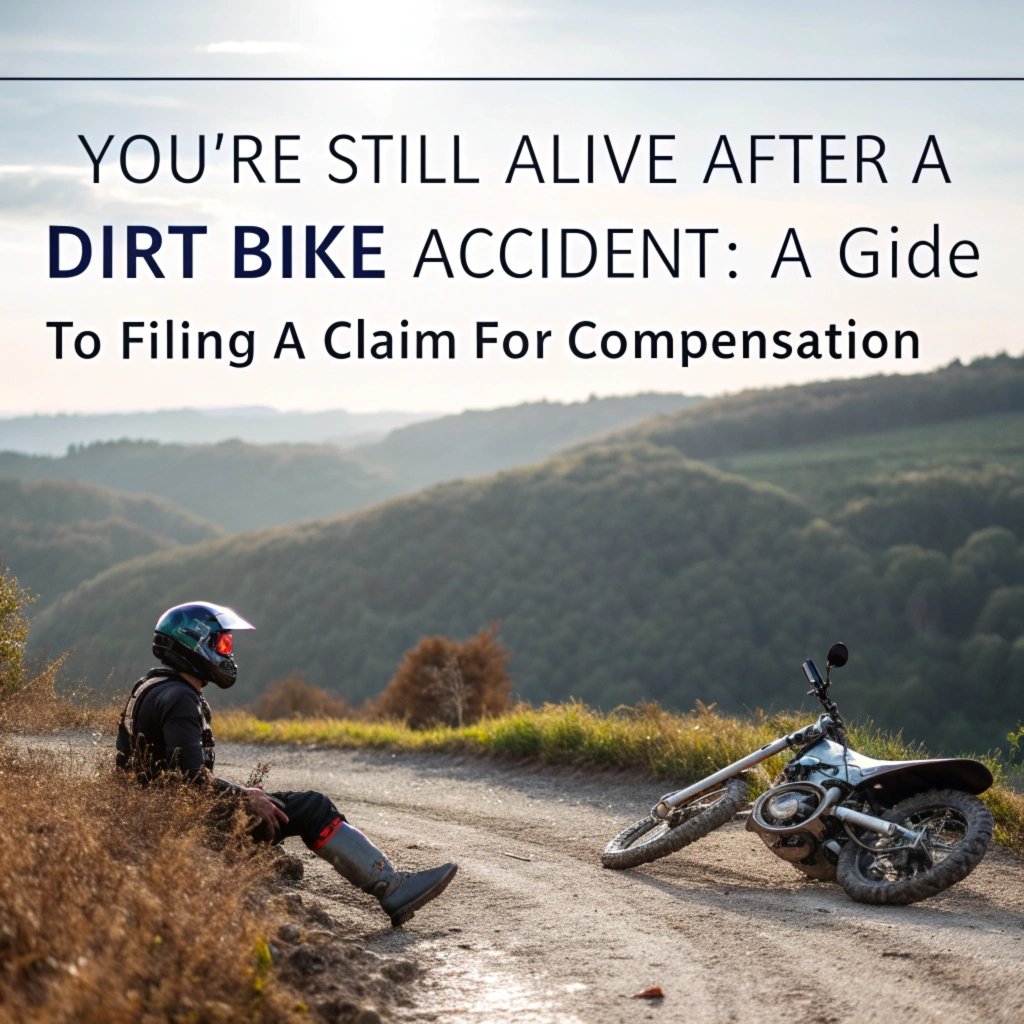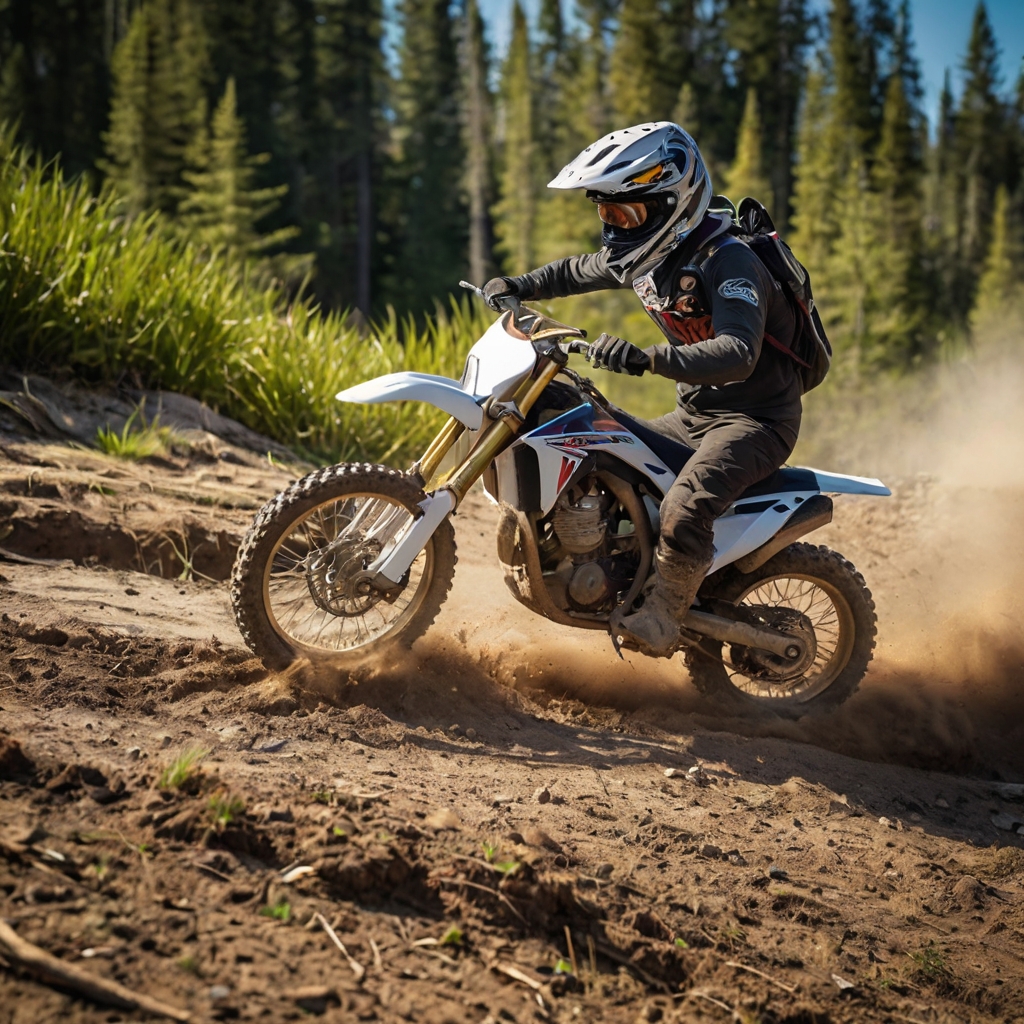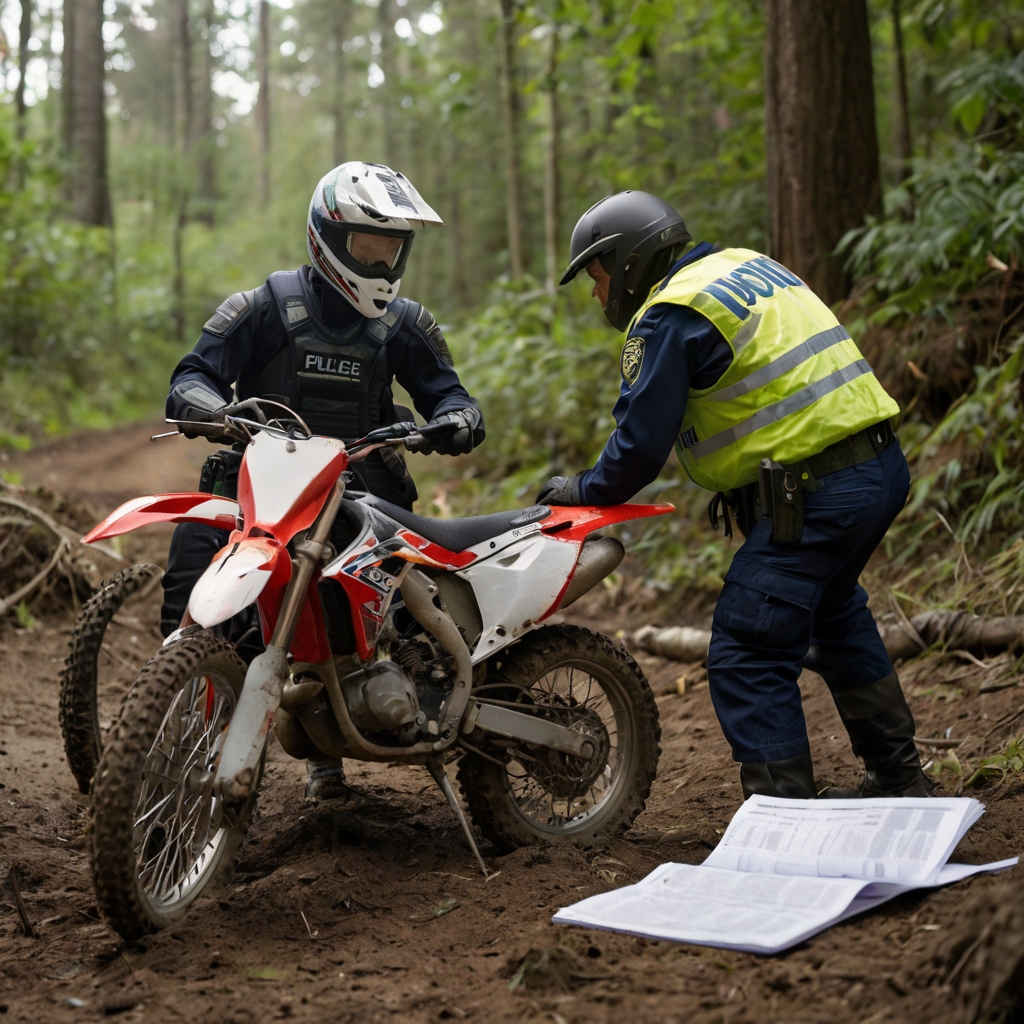If you’ve ever been involved in an accident or had a claim denied, don’t assume your motorcycle insurance will cover everything.
Many people think that just because they have bike insurance, their coverage is complete and utter. But what about the gaps left unexplored?
What if I told you there are significant pieces of equipment, even some medical treatments, or certain situations where your policy may not step up to protect your financial well-being?
Understanding motorcycle insurance exclusions will give you a clearer insight into those gaps and help prevent costly surprises in case something happens on the road.
This addition emphasizes the importance of being aware of exclusions in motorcycle insurance policies while maintaining the original message of your paragraph
The Forgotten Risks on Motorcycles
As a motorcyclist, you’re aware of the thrill of hitting the open road, but have you considered whether your rides may be putting you at risk for unexpected coverage gaps? Motorcycles and their riders are not immune to insurance-related risks. In fact, cyclists often face unique challenges in obtaining compensation for injuries or accidents.
Consider this: as a delivery driver with an employer that requires commercial liability insurance, you might be entitled to Workers Compensation benefits if an accident occurs during your shift. But what about the hours between jobs? If you’re riding recreationally without a commercial license – such as enjoying weekend getaways on two wheels – workers’ compensation won’t provide the same level of support.
In many cases, injuries sustained while driving a car or truck are typically covered under their personal auto policy. However, this isn’t always true for motorcycles. Even if you have medical insurance that covers accident-related expenses, there’s often a catch: medical professionals may determine whether an injury was caused by wear and tear over time rather than the actual accident.
If someone gets hurt on your motorcycle due to pre-existing damage – like cracks in the frame or worn-out tires – it can be tough for them to get compensation. This might make it harder for insurance companies to prove negligence on their part, because they’ll claim that rider contributed some extent. The risk of accidents is not just about being hit by another car; sometimes, your own bike’s condition plays a role.
If you’re injured in a motorcycle crash and need help paying medical bills or replacing damaged gear, here are key points to keep in mind:
– Take steps to mitigate risks through proper training, equipment maintenance (e.g., regular oil changes), and practice defensive riding skills.
– Work with insurance providers that understand motorcyclists’ unique needs for customized coverage options – such as supplemental policies designed specifically for riders.
Riding in Construction Zones and Who’s Liable
When riding in construction zones, you face a unique set of hazards that can be particularly challenging for motorcyclists.
Another vehicle colliding with your motorcycle could cause significant damage and leave it undrivable. For instance, if another car strikes a vehicle or object while changing lanes on the highway, it may result in substantial repairs to your bike.
In cases where you’re hit from behind by someone who hasn’t seen you in time, their lack of visibility increases the likelihood of accidents like these happening. If that happens to your motorcycle and someone is at fault for damaging it, they will likely be held liable for damages.
Traffic lights and road signs frequently change in construction zones. This unpredictability can lead to confusion among drivers and motorcyclists alike, increasing the risk of collisions resulting in property damage. However, accidents can still happen even when you’re taking necessary precautions.
If a motorcycle accident occurs during these conditions, seeking help as soon as possible is crucial to minimizing damage or injuries from your bike.

What Happens When You Ride with an Ex or Friend
When hitting motorcycles with certain companions can put them in uncomfortable situations.
Consider excluding an ex or friend from your ride if they may be pressured into unwanted advances, such as sex or other forms of harassment. This might not always be feasible for friends who are just that – friends, but it’s worth considering the risks. After all, a motorcycle is no place to get caught up in drama.
Excluding someone can prevent those awkward situations from arising and put everyone at risk on the road. For instance, if you’re dating or riding with someone new and they’re being too clingy or overly flirtatious – it’s time for an intervention. But how do you handle this delicate situation? It doesn’t have to be a nightmare.
In some cases, f them from your route, like putting up a physical barrier between you and the ex who keeps trying to initiate intimacy on long rides or simply giving their friend the cold shoulder if they’re being too pushy. This is not about being rude; it’s just common sense.
However, exclusion isn’t always practical when there’s an existing friendship at play. It can be especially tough for friends who are used to riding together – perhaps even sharing a home and household with each other. In this case, setting clear boundaries might become the safer option (pun intended). You could say something like “Hey buddy let’s keep it platonic.” This sets expectations without leaving room for misinterpretation.
When all else fails, here’s an alternative: try separating yourself from your ride companion when things start to get too heavy. Make a break and grab a coffee somewhere nearby; take the scenic route that doesn’t require close quarters with the potential troublemaker.
For most riders, this might sound counterintuitive – but trust me it works like magic.
When riding together can put someone in an uncomfortable situation or pressure them into actions they don’t want to do, consider separating from your partner when on a bike ride.
In doing so you avoid putting others at risk of being harassed and the same goes for yourself.
Dealing with Tolls and Fees While Riding
Toll booths can be a stressful experience, especially when you’re not prepared.
If your motorcycle policy doesn’t provide adequate coverage for toll roads and fines, it could leave you financially strapped in an emergency. To avoid losing money due to unexpected fees or traffic violations while riding on your bike.
Here’s what you need to know about exclusions from your motorcycle insurance:
- Tolls: If you hit a toll booth without paying the fee, don’t expect your policy to cover it either. For example, in New York City, if you accumulate $100 in unpaid tolls and fines, that money might not be available for future accidents or repairs.
- Parking tickets and towing costs: While some insurance policies may cover parking-related damages or issues with your motorcycle while parked on a public road (like vandalism), they’re often excluded when it comes to getting pulled over by law enforcement or traffic authorities due to non-compliance.
When you get stopped for an infraction, report the issue immediately; failing to do so might make your policy ineligible.
- Fines and penalties: Reporting accidents is crucial; if not done promptly and truthfully, these may be excluded under motorcycle insurance policies.
- Towing costs after impoundment from traffic infractions or non-compliance with law enforcement can result in substantial financial loss – such as storage fees when your vehicle gets held without proper documentation.
If you have any questions about what is covered on a motorcycle policy contact the service provider for assistance.
- Penalties for violating parking laws are often excluded under insurance policies; it’s worth reviewing specific requirements to avoid non-compliance.
- Failure to report certain fines before court proceedings can also impact coverage from your bike’s insurance plan, so be sure you follow through on reporting and informing law enforcement in the event of a traffic incident or accident.
- Insurance deductibles apply not just after accidents but if necessary due for instance towing costs incurred as well.
In conclusion: Before hitting the road ensure that there are no unexpected fees waiting ahead – especially tolls, parking tickets & fines, towing services with your insurance plan!

Insurance Consequences of Driving without a Helmet On Kids
One crucial aspect of motorcycling is not wearing a helmet, particularly when accompanied by children. This oversight puts young lives at risk and necessitates attention from parents and guardians.
A sobering example of this reality can be found in statistics that reveal motorcycle accidents involving non-helmeted riders have a fatality rate 27.5 times higher than those wearing them (National Highway Traffic Safety Administration). Victims’ families are left to grapple with the financial burden of medical bills, which can lead to overwhelming emotional distress and long-term economic hardship.
“The most critical thing that parents can do for their children is not just provide a helmet,” says Dr. Jane Thompson, a leading motorcycle safety expert. “It’s also providing peace of mind through comprehensive liability insurance policies that cover helmet-related accidents.”
As the parent or guardian, it’s your responsibility to ensure you’re covered in case of an accident. Don’t rely solely on general information; instead, prioritize finding a policy with coverage for helmet-related injuries.
Investigations have shown that a significant proportion of motorcycle accident victims who die as a result of head trauma lack helmets. Furthermore, medical studies suggest that wearing a helmet can decrease the risk of severe injuries by up to 70%. By prioritizing comprehensive liability insurance policies through these specific riders’ protection plans and family rider insurance programs you may alleviate some financial burden on your loved one.
The key takeaway: purchasing motorcycle insurance with adequate coverage can significantly reduce anxiety for families, helping them cope financially when helmet-related accidents occur.
Don’t Let Lack of Coverage Leave You Vulnerable
The moment you get into an accident, your lack of insurance coverage can be devastating. When it comes down to protecting what’s most important – your health and well-being – nothing should come between you and the financial security that only a robust motorcycle insurance policy can provide.
In the event that you’re involved in a motorcycle accident with someone who is underinsured or uninsured, don’t wait for things to get any worse. Act swiftly to seek compensation from those responsible for your injuries.
Investing time into researching suitable policies upfront will save you hours of stress and anxiety later on when an unexpected incident occurs. Furthermore, having the right insurance policy in place can protect not only you but also other road users who are affected by accidents caused by someone with insufficient coverage.
Don’t wait any longer to get back behind the handlebars – now’s the time for action!




